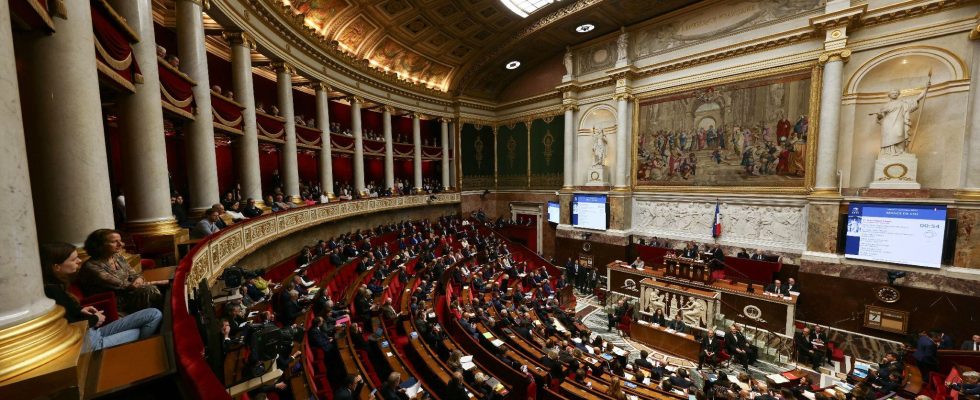This will be the first of eight texts to be examined during the “niche” or parliamentary initiative session of the Ecologists group, Thursday April 4 at the National Assembly. The proposed law against PFAS, per- and polyfluoroalkyl substances, is carried by the environmentalist deputy for Gironde Nicolas Thierry. It has three articles. The first aims to reduce the population’s exposure to these eternal pollutants by prohibiting the manufacture, import, export and marketing of certain products that contain them.
On March 27, in the Sustainable Development Committee, Nicolas Thierry agreed to restrict the initial scope of his text in order to obtain a majority of votes. An amendment thus provides for a ban from January 1, 2026 on any kitchen utensil, cosmetic product, wax product (for skis) or textile clothing product containing PFAS, with the exception of protective clothing for professionals security and civil safety. According to the text voted on March 27, all textiles will be affected by the ban from January 1, 2030. The packaging sector falls outside the scope of the law, but a European regulation must “very soon” regulate it more strictly.
Other measures present in this bill: the obligation to control the presence of PFAS in drinking water throughout the territory and the application of the polluter pays principle, with a tax targeting manufacturers releasing PFAS so that they “directly finance depollution”, indicate Les Ecologistes.
The government’s “reserve”
Almost indestructible, PFAS, widely used in the chemical industry, accumulate over time in the air, soil, river water, food and even in the human body, hence their nickname of pollutants. “eternal”. This “sustained exposure” is “extremely serious” to the extent that “scientists consider that these substances represent a serious risk to health”, underlined Nicolas Thierry on March 27. Among the “most documented” risks: “impaired fertility, thyroid diseases, high cholesterol levels, liver damage, kidney cancer,” he listed in particular.
On March 27, the majority supported Nicolas Thierry’s text. However, this proposed law against PFAS arouses “reservation” from the government, which prefers the European approach to this subject, “based on science”, a government source told AFP this Wednesday. “We will have to wait at least another year for the results” of European scientific work on the dangerousness and the possible replacement or not of PFAS, said this government source. “We must avoid legislating in all directions when, on the contrary, such a subject requires real scientific rigor in the approach,” she insisted.
The Prime Minister, Gabriel Attal, questioned by an environmentalist member of the Assembly on the dangerousness of PFAS, stressed that the government is “fighting at the European level” to “reduce the presence of these molecules, particularly in food packaging “. “We had a first victory in Brussels,” he said. “The European lever is the right lever” so as not to weaken French industry at the expense of those of neighboring countries, he said. This is the position that the Minister of Industry, Roland Lescure, should support on Thursday in the National Assembly on the government bench.
The opposition of Seb employees
This bill sparked a strong reaction from Seb. The kitchenware manufacturer, which uses contested substances in some of its products to make them non-stick, maintains, however, that they do not present a danger to health. Seb’s unions and employees demonstrated this Wednesday in front of the National Assembly.
To the sound of a concert of pots and pans, hundreds of employees of the Seb group, supported by their management, gathered to demand the “withdrawal” of the PFAS bill. They see in this text “a very direct threat” to the 3,000 jobs at the Seb factories in Rumilly (Haute-Savoie) and Tournus (Saône-et-Loire) which notably manufacture Tefal stoves.
A sign that the group’s mobilization seems to be starting to have an impact, an amendment tabled by Modem MP Cyrille Isaac-Sibille after examination in the Sustainable Development Committee intends to postpone the ban applied to kitchen utensils until January 1, 2030. “We need a law to show that France is committed against PFAS, but without harming French industry”, indicates at Les Echos Renaissance MP Jean-Marc Zulesi, president of the Sustainable Development Committee.
